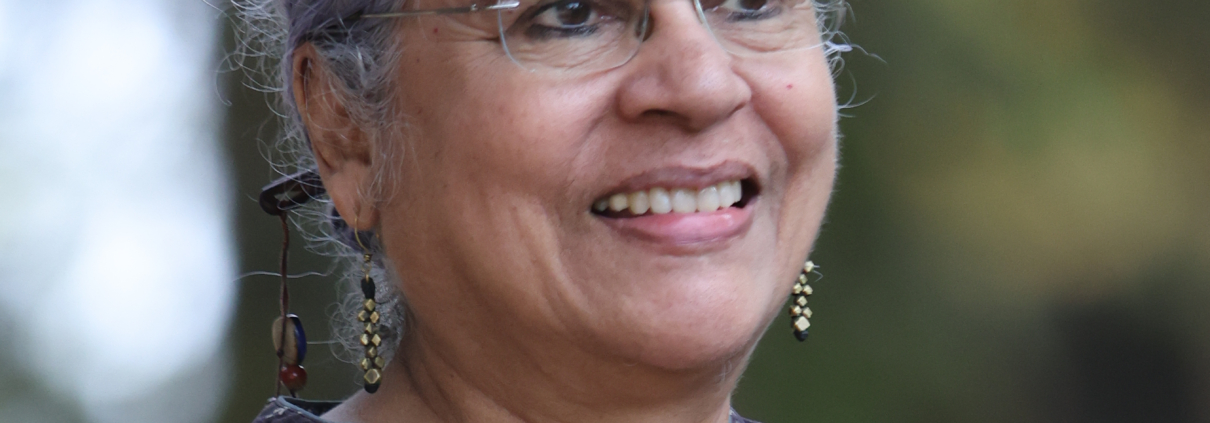Devotion to media for empowerment
Dr. Anjali Monteiro
Documentary filmmaker, educator and researcher
India
===
Dr. Anjali Monteiro is an award-winning documentary filmmaker, pioneering media educator and prolific researcher. She is currently a board member (2022-24) of IAWRT International.
She was a fresh college teacher when she first got interested in using media for community empowerment in the late 1970s. She began working with Chandita Mukherjee, a filmmaker and a founding IAWRT member who recently passed away. It was also through Chandita that Anjali became an IAWRT member in 2014.
“She persuaded me to join as she felt that I could contribute positively to the organisation. I knew many other members, such as Reena Mohan and Bina Paul, as personal friends, so I felt I had entered a warm and welcoming space!” Anjali said.
Anjali’s work on documentary filmmaking, education and research entwined throughout her career.
“In the early 1980s, I joined Tata Institute of Social Sciences (TISS), a premier institute for social work education, and worked on setting up an audio-visual unit there. Without any education or background in media, I found myself heading an audio-visual adult education programme. I learned the hard way, but it was also great fun and a journey of discovery,” Anjali recalled.
The audio-visual unit with two members has grown into a School of Media and Cultural Studies. Anjali worked at TISS from 1983 till she retired in 2020.
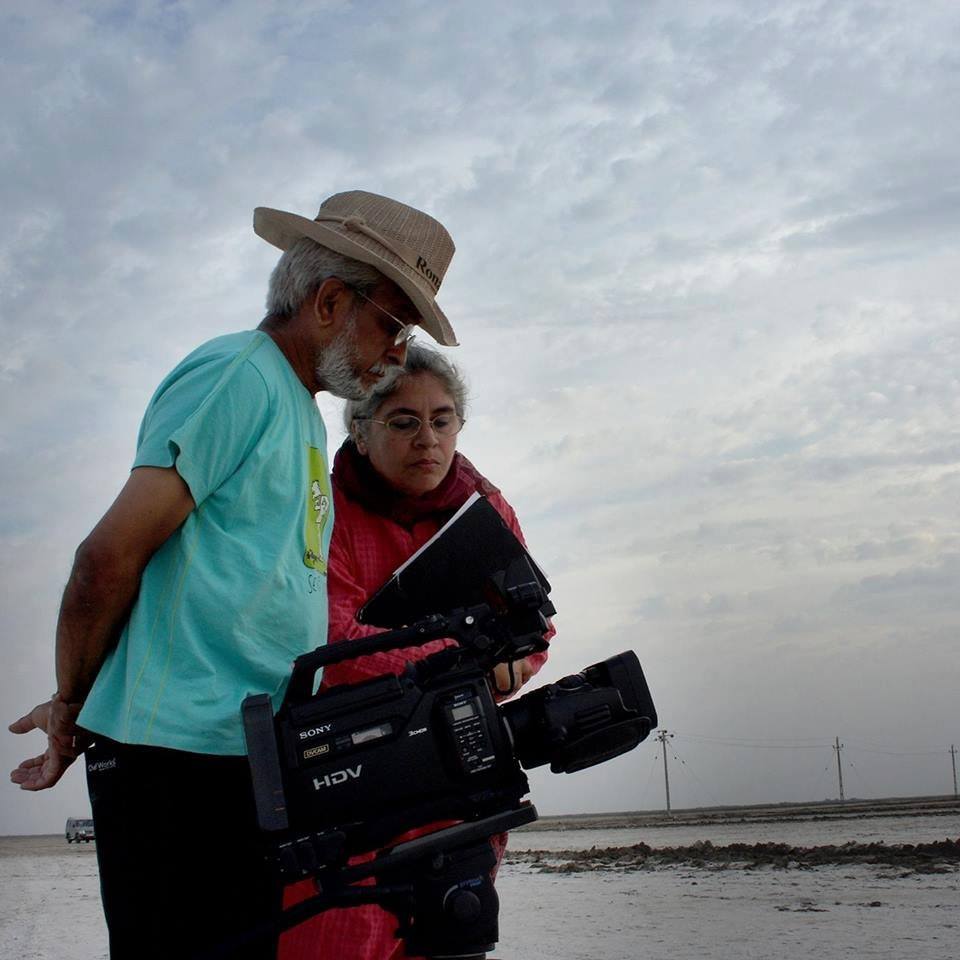
The Unit for Media and Communications Anjali set up got into documentary filmmaking in the mid-1980s, when video first became accessible and we have produced a number of award-winning documentaries on themes ranging from prison poets (YCP 1997, 1997) to the experiences of a transgender family (Our Family, 2007) to a series on the syncretic musical traditions of nomadic pastoralists who live on the border of India and Pakistan (The Kachchh Trilogy, 2009-17).
“In most of our work, the impetus has been to question received notions of normality and deviance, of the self and the other and to explore the wisdom of marginalized communities. I have worked on all these films in collaboration with my colleague, and later my life partner K.P. Jayasankar,” shared Anjali.
More about the couple’s work can be found at https://www.monteiro-jayasankar.com/
Another important contribution Anjali made was to set up a two-year Master’s programme in Media and Cultural Studies in 2007. This programme tries to bring together theory and practice in new ways, with a focus on critical theory, documentary film and multi-media journalism.
“We have produced many fine students who have gone on to become documentary filmmakers, journalists, media researchers and teachers,” Anjali said.
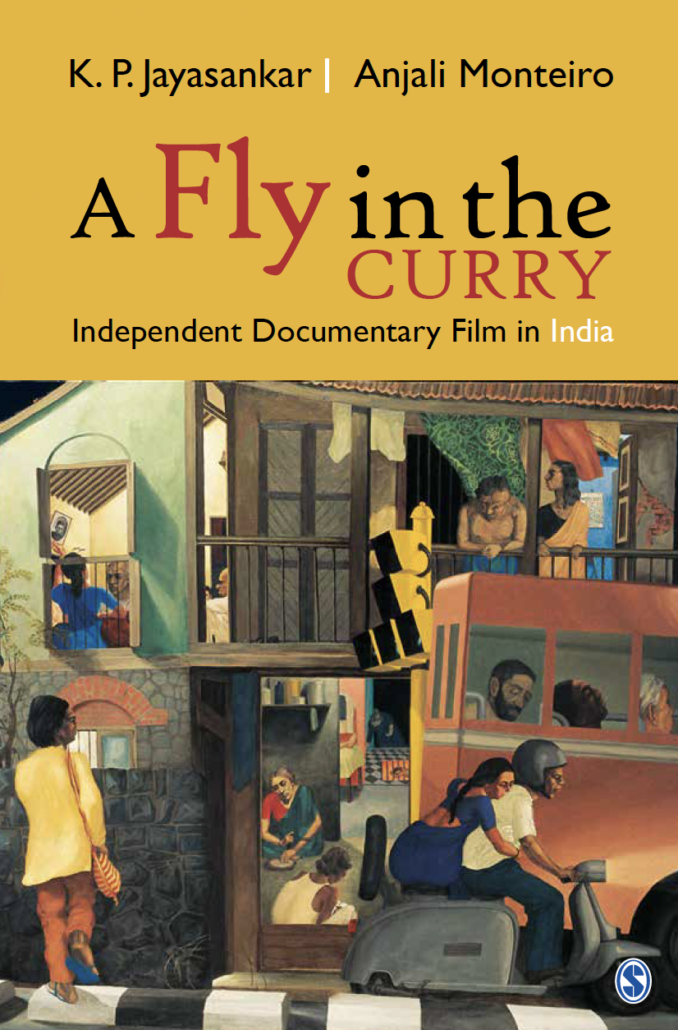
Anjali and her partner have written one of the first books on independent documentary film in India, entitled A Fly in the Curry: Independent Documentary Film in India, (Sage, 2016) which is a widely used and cited book. They have also written several papers and also non-academic writing on themes around documentary film and censorship.
Despite her retirement in 2020, Anjali and Jayasankar’s work in media, film and the academe continues. They have been focusing on writing on documentary film, as well as teaching as guest faculty in many media institutions. They also plan to get back to their documentary filmmaking practice, which took a backseat during the pandemic.
Anjali is also on the editorial board of FemAsia, which is a quarterly online feminist magazine with a South Asia focus; she writes and commissions work for it. She has also been on the jury of a number of documentary film festivals, both in India and overseas.
“I have been fortunate to have wonderful colleagues and together we have been able to do interesting work, in media education and documentary film production. However, things have become more difficult over the years in India. At the present juncture, working within the media, whether in media education or production, has become increasingly challenging,” Anjali shared.
She sees the current political scenario and the increasing commercialization of education in her country as drawbacks to access to education and freedom of expression that she has pushed for in her work.
“For a public university, it has become difficult to foster freedom of thought and expression and to preserve the mandate of free access for all, as the imperatives of a profit-driven education begin to impinge on what was earlier a heavily subsidised sector. Overall, the political scenario has created a culture of silence, sycophancy, fear and censorship, which is not conducive to freedom of expression and to a free and independent media. This makes it difficult for new entrants to the media to find safe spaces to work within, that are creatively and intellectually stimulating. Though the overall picture looks grim, there are always spaces of hope and resistance…” she said.
Also despite her retirement, Anjali has taken up another challenge to use her accumulated skills, expertise and knowledge to empower others: this time to serve as IAWRT International board member.
“IAWRT is at a juncture where it needs to seek new avenues for funding in order to sustain its activities, and I look forward to being a part of initiatives in this regard. I am on the Communications, Mentoring and Afghanistan Crisis Committee and I hope to contribute in all these areas, through writing, networking, mentoring and working in collaboration with my fellow board members. I hope to work in many different ways, to the best of my capacity, towards our collective vision of a gender-just media and safe spaces for women media workers across the globe,” Anjali said.
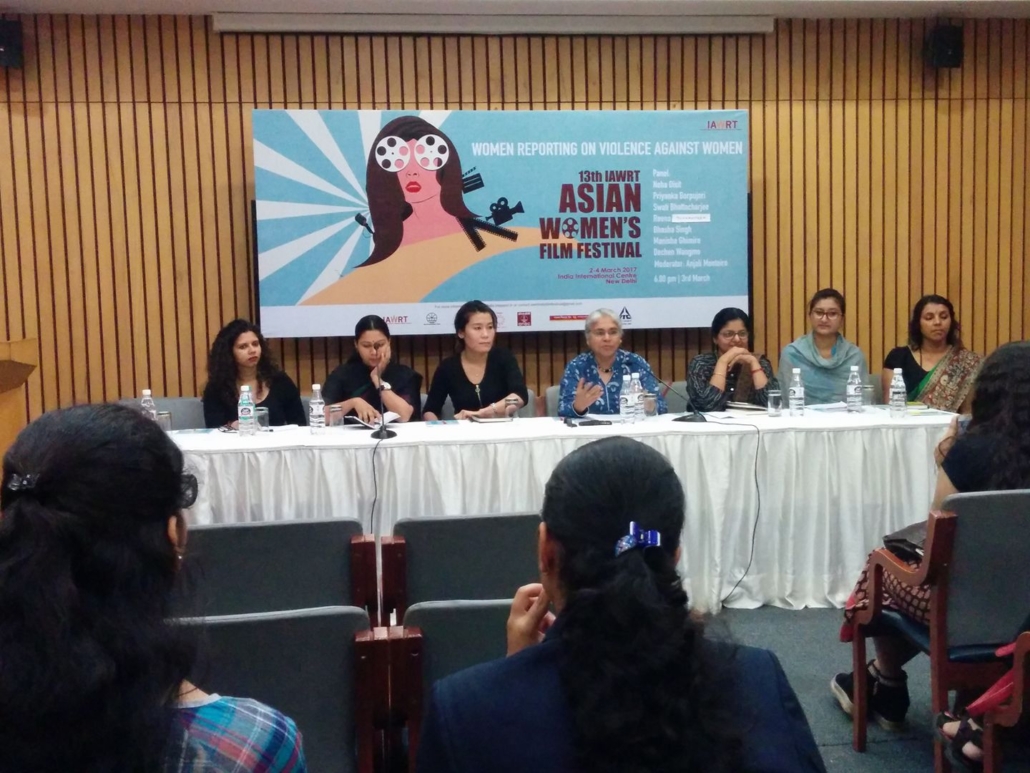
She also served on her local chapter’s board. She was a member of the IAWRT India Board of Trustees from 2016 to 2018 and was actively involved in work for the Asian Women’s Film Festival. During her time on the Board, she organised a series of gender sensitisation workshops for Bachelor’s level media students from relatively underprivileged backgrounds, from colleges in Mumbai.
“That was an activity that I really enjoyed, as the students, both women and men, came up with creative ideas to explore and question the ways in which gender relations of power impinge on their lives,” Anjali recalled.
Recently, Anjali has been involved in work on the Afghanistan crisis committee as IAWRT International board member and she shared that she has been so moved by the very adverse conditions under which IAWRT members from Afghanistan, some of them refugees, some in hiding, have been trying to survive and to work.
“IAWRT has helped me connect with women working in the media across many geographies. It has helped me understand the challenges under which women work, and to feel that I can contribute to amplify concerns around freedom of work and expression for women media workers,” she said.
She finds this connection and solidarity among women in media to be crucial more than ever.
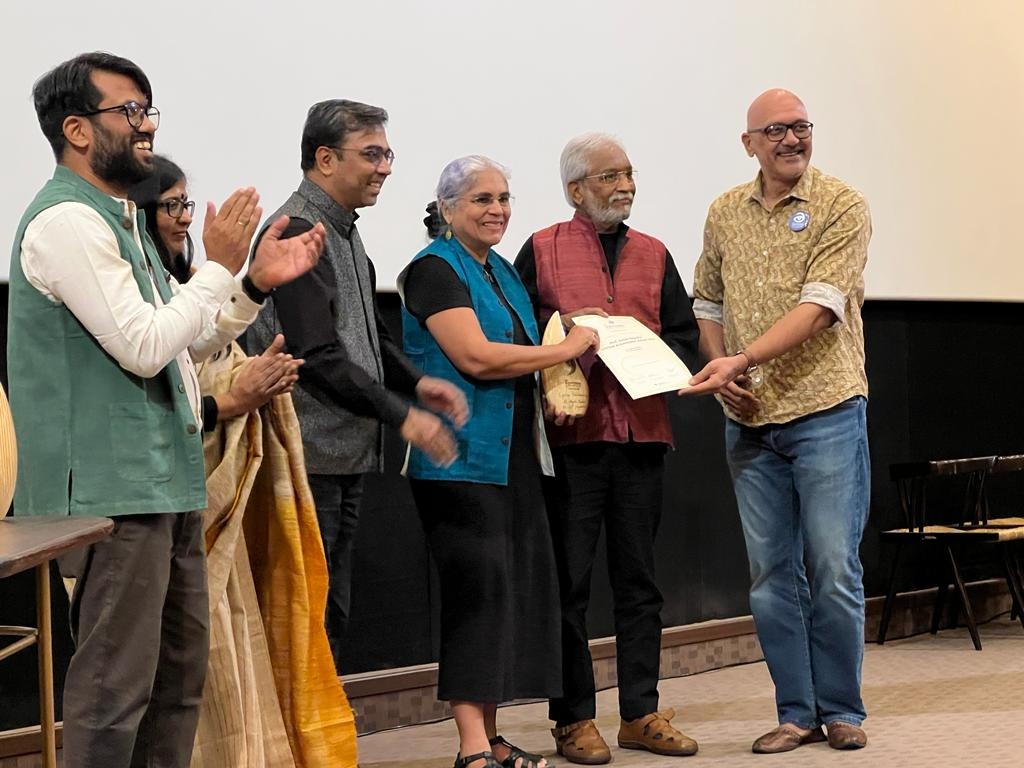
“As I mentioned earlier, the challenges are sharper than ever before, as right-wing, undemocratic governments are in power, both within my country and elsewhere. In this scenario, with both overt and covert censorship on the horizon, it becomes increasingly difficult and dangerous to speak truth to power. I hope that the solidarities we forge within IAWRT and through other platforms and organisations can help resist these dangers and work towards safety and freedom of expression,” she said.
Retirement from a company or office does not mean a retreat from her life’s devotion. What Anjali started early in her career, she aims to continue.
“I hope to continue being a learner and a team worker, making films and other media materials that share indigenous knowledge, that represent marginalized voices and hopefully inspire others. I hope to continue writing books and articles that are thought-provoking and that make a contribution to knowledge. I hope to share my insights and to learn from young people for as long as I can,” she said.
For young women journalists, Anjali gave these words of advice:
“Be open, compassionate, and always ready to dialogue with others. Allow your creativity to flow without inhibition. Don’t be afraid of making mistakes. Always stand up for justice and freedom of expression. We live in difficult times, but we must continue trying to push the envelope. Above all, it is important to hope, no matter how dire the situation seems.”

